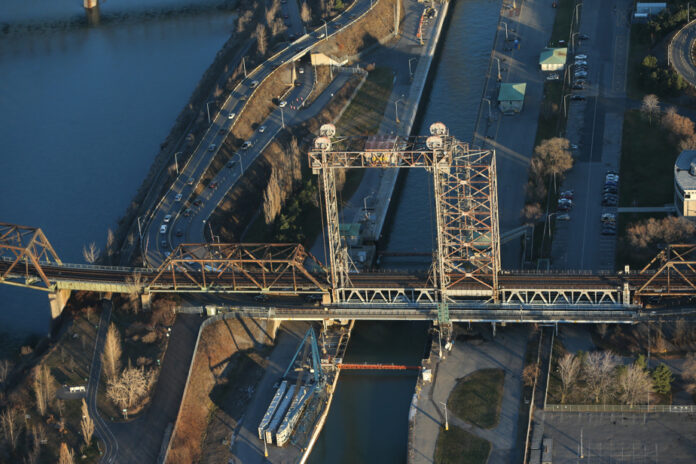(Montreal) Last chance negotiations continued late Friday afternoon with the aim of avoiding a strike at the St. Lawrence Seaway. This must be triggered during the night from Saturday to Sunday.
The Unifor union, affiliated with the FTQ, indicated that the parties were still meeting in St. Catharines, Ontario, where they are negotiating.
These are local sections of the large pan-Canadian union Unifor, in Quebec and Ontario, which are currently negotiating the renewal of their collective agreement with the St. Lawrence Seaway Management Corporation.
Union members voted 99% in favor of a strike mandate. This is due to be triggered at 12:01 a.m. Sunday.
These 361 union members work in the maintenance, supervision, engineering service and various navigation operations of the seaway, which extends from the Jacques-Cartier Bridge, in Montreal, to Niagara, in Ontario, via the locks.
Salary is the main point in dispute.
In a press release sent Friday evening, the employer party, the Corporation de gestion de la Voie maritime du Saint-Laurent (CGVMSL), affirms that it “remains engaged in the negotiation process”, but emphasizes that “progress at the negotiations continue to be slow, as high union wage demands could potentially lead to an increase in tolls to a level that would make the waterway less competitive and, consequently, increase the price of goods passing through it.
The CGVMSL adds that it “remains in regular contact with the maritime industry and the necessary measures for an orderly closure are now underway, including the establishment of cut-off times to allow vessels to safely clear the Lane system maritime before the strike cutoff time of 12:01 a.m. on October 22, 2023.”
She said there are currently more than 80 ships, including 40 internationally flagged ships, remaining in the seaway.
The St. Lawrence Seaway is a strategic axis of interprovincial trade in the country. Around 4,000 ships pass through it each year, including grain cargoes.
Both parties have already made it known that in the event of a strike, all navigation on this axis would be interrupted.
The strike had not yet been called on Friday when the Canadian Chamber of Commerce was already saying it was “very concerned”.
“We respect the right to collective bargaining and we sincerely believe that the best agreements are negotiated at the tables. The government must work closely with all parties to promote a settlement. These repeated work stoppages are harming the Canadian economy, fueling inflation and increasing costs for Canadians,” commented Pascal Chan, Senior Director of Transport, Infrastructure and Construction at the Chamber.















